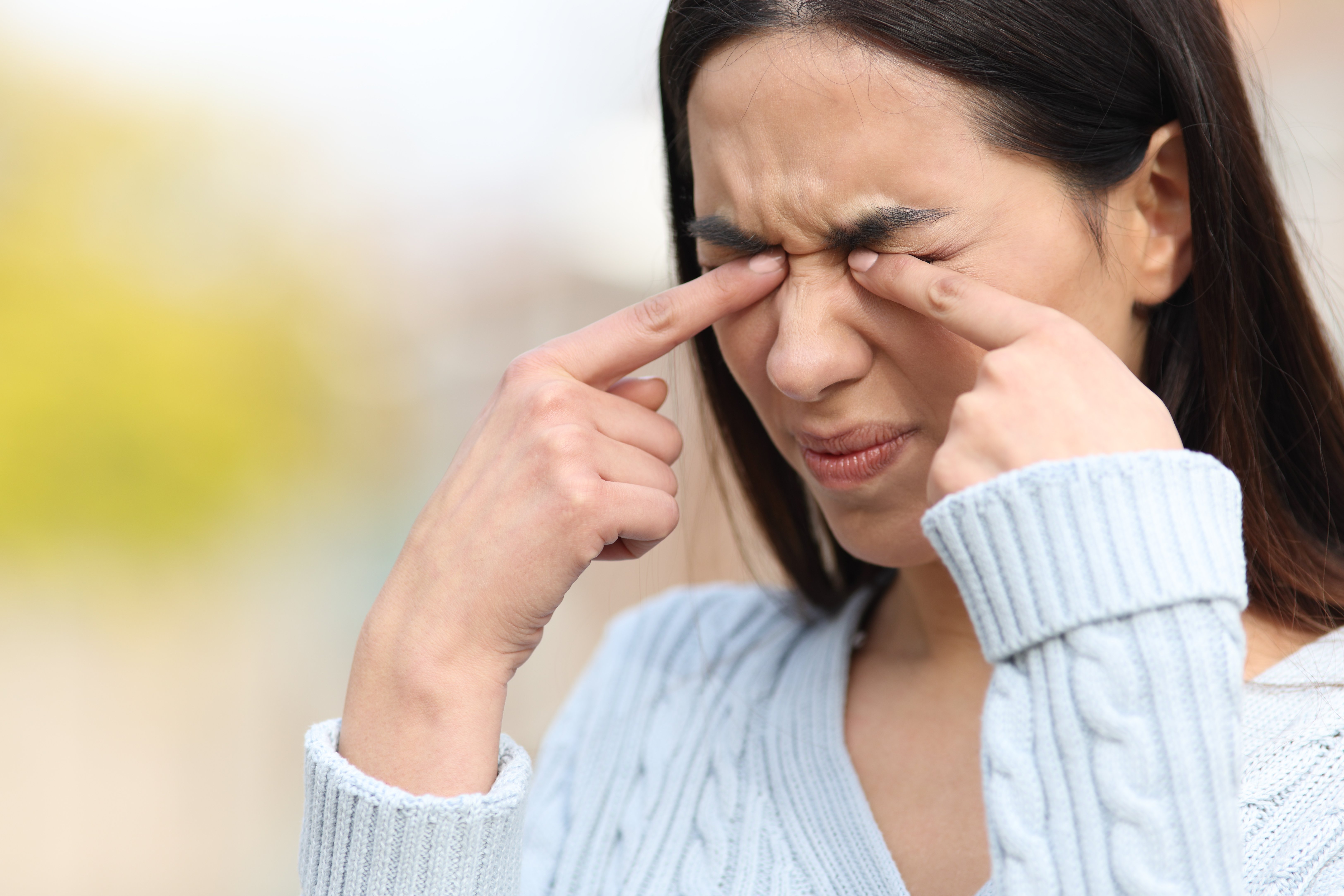
Although they have different causes, dry eye syndrome and seasonal allergies can exhibit similar symptoms. These are two of the more common ocular conditions people deal with daily. It is easy to confuse dry eye and allergies due to their overlapping symptoms, making it difficult to find consistent relief.
Most people know that seasonal allergies worsen due to increased amounts of mold, pollen, and other irritants in the air. However, recent research suggests that dry eye cases also spike in the spring. That can make it challenging to determine what you have. As with dry eye disease, seasonal allergies can impair your vision and affect your quality of life.
Is It Dry Eye or Allergies?
What is causing your eye discomfort, and how to address the problem? The first step is distinguishing the symptoms of ocular allergies and dry eye syndrome. While the two conditions have similarities—and it is possible to have both simultaneously—there are key differences. More importantly, they require different treatments.
Symptoms of Eye Allergies
Allergic conjunctivitis or ocular allergies are seasonal allergies that affect your eyes. They occur when an allergen triggers your immune system. It is best to understand that some allergens, such as pet dander and dust, are around year-long. However, most people suffer allergies seasonally due to plant spores and pollen. Allergic conjunctivitis symptoms include the following:
Eye redness
Watery eyes
Itchy eyes
Light sensitivity
Swollen eyelids
Eye burning or stinging
Symptoms of Dry Eye Syndrome
Dry eye disease is a chronic condition. Many people suffer from dry eyes without realizing the root of their symptoms. This condition typically results from low-quality or inadequate tear production. Certain medications, seasons, and environments can worsen the following dry eye symptoms:
Eye redness
Blurry vision
A gritty sensation in the eye
Excessive tearing
Stringy eye discharge
How to Tell the Difference
While the two conditions have some overlapping symptoms, such as eye irritation and redness, there are clues to help you determine the cause of your symptoms. If the predominant symptom is itchiness accompanied by a runny nose or sneezing, you are likely suffering from allergies. If you cannot link your symptoms to any allergens, it likely is dry eye syndrome.
Treatment Options for Dry Eye Syndrome and Ocular Allergies
A proper diagnosis by an eye doctor is necessary before pursuing any remedy. That is because the treatment plans for ocular allergies and dry eye are different. Dry eye treatment can range from simple remedies, such as blinking exercises and lubricating eye drops, to more advanced options to address the root of the problem, meibomian gland dysfunction.
Treatment for eye allergies typically includes specialized eye drops, antihistamines, and lifestyle changes.
Annual comprehensive eye exams are essential to maintaining vision and eye health. A trained and licensed eye doctor can correctly diagnose and treat ocular allergies or dry eye syndrome during the exam. They can also screen for and treat any other visual issues affecting your vision and eye health.
For more on dry eye and seasonal allergies, visit Cincinnati Vision Group at our Cincinnati, Liberty Township, Dayton, or West Chester, Ohio offices. Call (513) 793-5970, (513) 753-4981, (513) 712-5065, (937) 579-0393, or (937) 435-4293 to schedule an appointment today.




